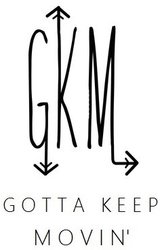Why You Should Still Be Traveling in Grad School
Author: TheHipmunk
This post was posted by TheHipmunk on Hipmunk’s Tailwind blog on February 11th 2016.
If you’re a grad student, it’s easy to come up with reasons not to travel. It costs a lot (and you’re low on funds). It takes time (and you have a thesis to write). If you’re a teaching or research assistant, it requires time off from work (and your supervisor might not approve). But in spite of these obstacles, there are distinct benefits to traveling while you’re still in graduate school. Here’s why you should make the effort.
You’ll make useful connections.
When you’re getting an advanced degree, it can feel like you’ll be in school forever. But believe it or not, the day will come when you’re sprung from the warm embrace of academia and will need to find a place for yourself in the thrilling world of work. And when that happens, it is really, really helpful to have a wide-flung network of people who are willing to help you make connections and set you up with relevant opportunities. How to build this network? Go on wide-flung adventures and build a network of like-minded people all over the world. Just don’t forget to follow up with them on LinkedIn or other social media networks in order to maintain those connections after arriving back home.
You’ll learn valuable skills.
In today’s globalized economy, employers are looking for workers who are capable of making cross-cultural connections and keeping the big picture in mind at all times. Traveling is a great way to expand these abilities while building on other employable skills such as creative thinking, adaptability and problem solving, the ability to work independently, a willingness to embrace risks, and/or speaking a foreign language. Traveling while in school has also been shown to improve learning outcomes overall.
You’ll gain real-world perspective.
Time spent in the field—either as part of a formal education experience or independent travel—can expose you to different research methodologies, help you uncover new interests that may inform your personal and professional goals moving forward, and provide you with real-world context for your chosen field of study. It’s one thing to study the impact of European colonialism in Quito, Ecuador or apartheid in Johannesburg, South Africa; it’s quite another to witness the long-term ramifications with your own two eyes.
You’ll master the art of self-presentation.
Remember those connections we referenced above? Making them provides an awesome opportunity to get comfortable telling other people what you do and what you’re all about. Traveling to academic or industry conferences is a particularly great way to practice these professional conversations. Not only can you try out your elevator speech, but you can do so with colleagues and experts in your chosen field. (Do it politely enough, and they might even be willing to give you a few pointers.) By the time you get to your first job interview, talking about your professional achievements will feel like a piece of cake.
You’ll relieve stress.
The life of a grad student is packed with all kinds of stressors, from worrying about grades and dissertation reviews to fretting over your employment prospects come graduation. Traveling presents a great way to escape from these stresses and gain some much-needed rejuvenation so that you’re able to avoid burnout and finish your degree with your health—and future prospects—still fully intact. Whether you’re traveling to Miami or Moscow, try to build in time for some quality R&R.
In addition to the benefits listed above, there’s some evidence that traveling as a student is so beneficial it may even predict higher grades in school and higher incomes later in life. Regardless of whether you ever uncover a direct correlation between your adventures and your pay grade, it’s clear that traveling is a great way to promote your long-term personal and professional success.



Leave a Reply